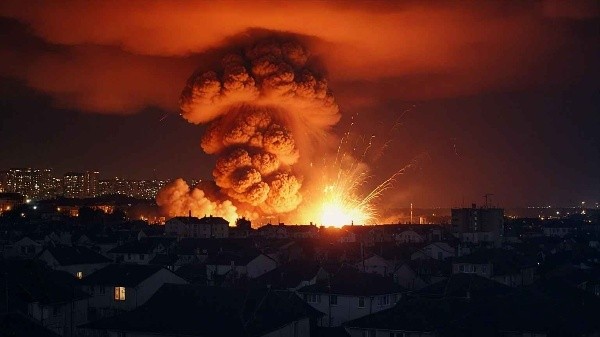Iran’s Plan to Strike Back Against the U.S.
Iran’s Military Preparations Following U.S. Attacks
Loading...

Lebanon’s Health Ministry said at least 37 people were killed, and over 150 were injured in Israeli strikes on Thursday, as the regime’s unrelenting aggression against Lebanon continues.
Overview of Recent Attacks
On Thursday, October 3, 2024, Israel intensified its military operations against Lebanon, resulting in significant loss of life and injuries. According to Lebanon’s Health Ministry, at least 37 individuals were killed and over 150 were injured due to the airstrikes, marking a continuation of the ongoing aggression against the nation. The ministry reported these figures late Thursday night, highlighting the severity of the situation.
Details of the Airstrikes
The Israeli military launched multiple waves of airstrikes targeting the southern neighborhood of Dahiyeh in Beirut. These strikes utilized powerful bunker-buster bombs, with reports indicating that more than a dozen bombs were deployed during the attacks. The primary targets included civilian buildings, which have been increasingly affected by the ongoing conflict. Notably, the number of bombs used in this latest round of strikes surpassed those used in previous attacks, including one that resulted in the death of Hezbollah leader Sayyed Hassan Nasrallah just a week prior.
In addition to Dahiyeh, the strikes also impacted areas near Beirut International Airport, targeting Hezbollah’s media relations office and a warehouse in the vicinity. A source close to Hezbollah reported that 11 consecutive strikes were carried out in south Beirut on Thursday night, causing significant disturbances throughout the city. Witnesses described the scene, noting loud explosions that triggered car alarms and caused buildings to shake, with giant fireballs and thick smoke rising from the targeted sites.
Warnings and Evacuations
Earlier in the day, the Israeli army issued an urgent warning to residents in the Burj al-Barajneh area of south Beirut, advising them to evacuate. The warning included maps indicating the proximity of Hezbollah facilities, suggesting imminent military operations in the area. This preemptive measure underscores the escalating tensions and the potential for further violence.
Rising Casualty Figures
The ongoing airstrikes have contributed to a staggering death toll across Lebanon, which has now surpassed 1,700 since the beginning of October 2023. Additionally, nearly 8,770 individuals have been reported injured due to the conflict. The Lebanese government has been closely monitoring the situation, as the humanitarian crisis deepens.
Hezbollah's Response
In retaliation to the Israeli airstrikes, Hezbollah has launched numerous attacks, including barrages of rockets and drones targeting Israeli positions. The Lebanese resistance movement has vowed to continue its operations against Israel as long as the conflict persists, particularly in light of the devastating impact of the ongoing Gaza war, which has claimed the lives of over 41,780 Palestinians, predominantly women and children.
Hezbollah's military capabilities have been on display, with reports indicating that at least 17 Israeli troops have been killed since the onset of the latest conflict. The group has successfully repelled multiple attempts by Israeli elite forces to advance into southern Lebanon, inflicting heavy losses on their equipment and personnel.
Expert Analysis
Political analysts have noted Hezbollah's operational effectiveness, warning that Israeli forces could become "sitting ducks" should they attempt a ground invasion of southern Lebanon. The ongoing conflict has raised concerns about the potential for further escalation, with both sides entrenched in their positions.
As the situation continues to evolve, the international community watches closely, hoping for a resolution to the violence that has plagued the region for decades. The humanitarian implications of the conflict remain dire, with civilians bearing the brunt of the hostilities.
Editor
Iran’s Military Preparations Following U.S. Attacks
Troops remain in five strategic locations, raising fears of renewed tensions and long-term occupation.
Opposition forces have taken control of the capital after a significant offensive. Here is how it unravelled.
